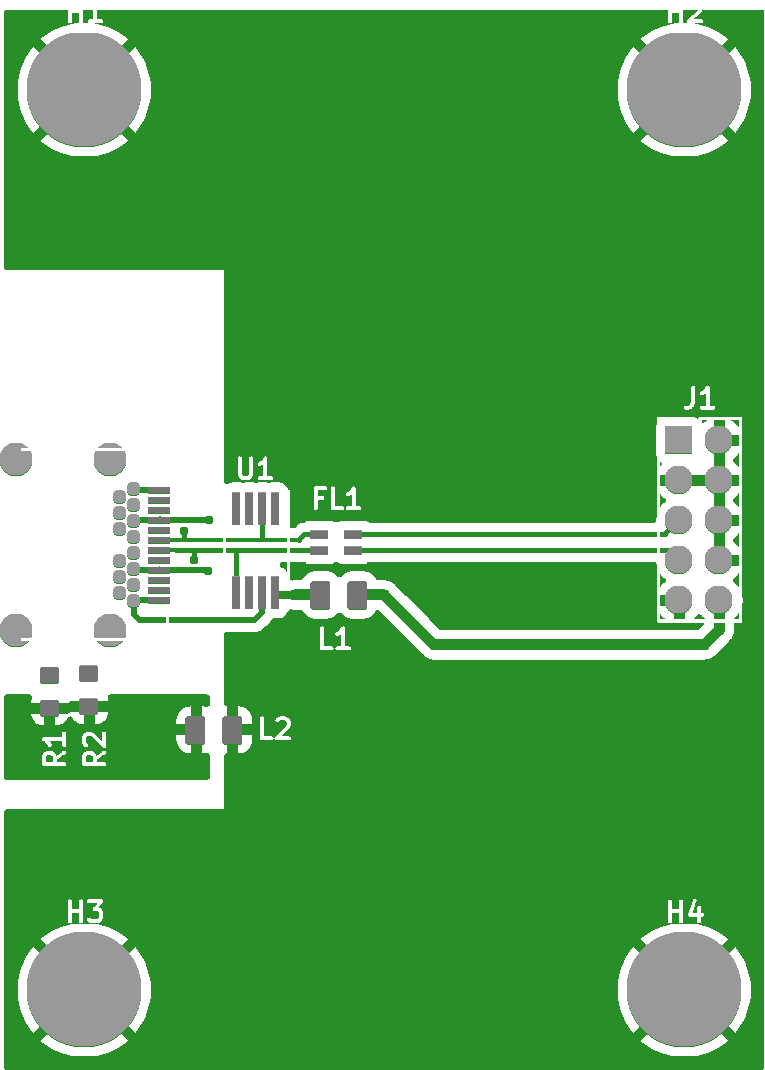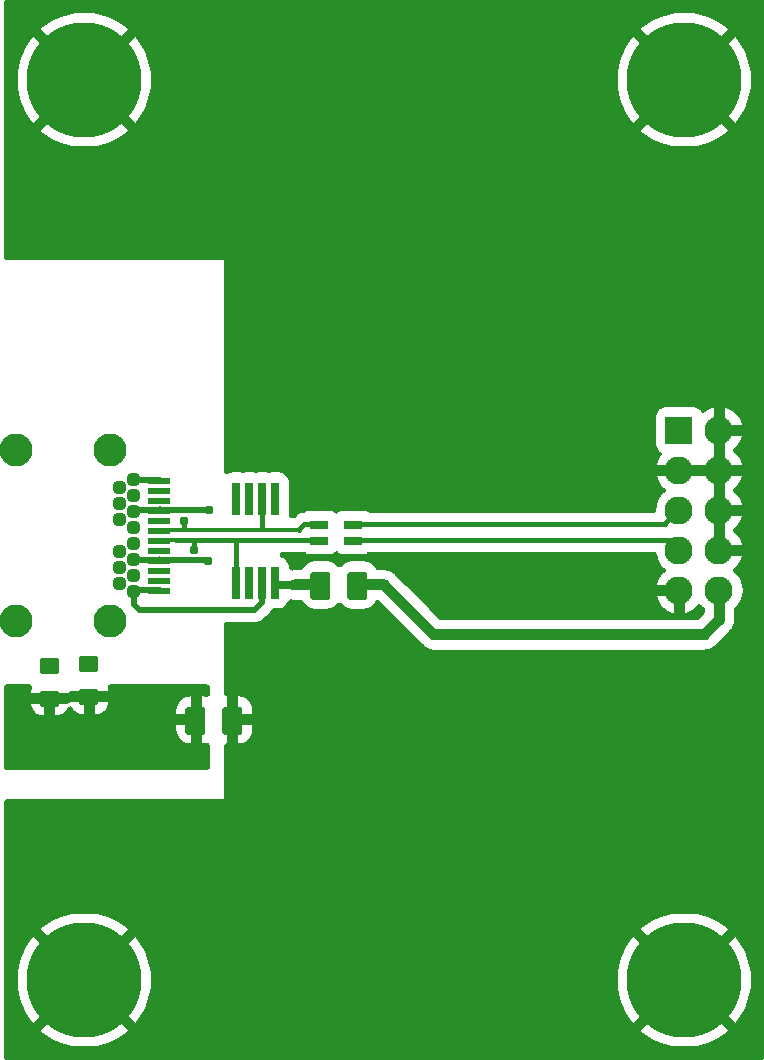🥞 Multi file guide¶
Welcome to the multi file guide. This guide shows how to use CompositeView class API
to handle multiple Gerber files at once. CompositeView relies on GerberFile
instances to provide access to individual Gerber files, hence It might be useful if you
take a look onto Single file guide before continuing with this
guide.
Creating CompositeView instance¶
CompositeView
class is a thin wrapper around multiple
GerberFile
objects which can be imported from pygerber.gerber.api module. You may have noticed
that the name of the class is weirdly generic, instead of being something like Project
or alike. Well, it turns out that usually it does not make sense to operate on all files
from project at once, for example, rendering top layers on top of bottom ones
will produce hard to understand images. Therefore PyGerbers CompositeView class takes
an aproach of group files that should be rendered together instead of accumulating all
the files from the project. With that logic in mind, we would use one instance of
CompositeView to represent top layer of the design, with silkscreen, solder mask, top
copper etc. while parts of bottom of PCB are grouped in separate CompositeView
instance.
CompositeView constructor accepts multiple GerberFile objects as arguments. Order of
files affects order of rendering to shared image. First GerberFile is the bottom most,
usually copper layer, will be covered with all other layers, and last GerberFile is
top most, usually silk screen, will not be obscured by any layer. Here is an example:
CompositeView((GerberFile(source='@string', sha256='415f75c8fb8ffa30a1c272241e1048186af9d686cc58588c96af859acffc3f0e'), GerberFile(source='@string', sha256='f6cf84f51a7330d9195ea53164e4db7bac0415db5780df3f53e1d2986c85c725'), GerberFile(source='@string', sha256='0957b0e6c778e58507ba848249589bcbfba3a2b7e28c65ab5f07fe08f154d52a'), GerberFile(source='@string', sha256='66e189271f75224c5aa37e1ecf716e0a90f28560f54a49861b21420133c3c530')))
Rendering raster images¶
Image rendering API of CompositeView object is similar to rendering API of
GerberFile object. CompositeView object exposes render_with_pillow() method which
renders all files into single image.
CompositeView automatically aligns all images during grouped rendering, determines how
big final image has to be to fit all images and merges them into single image. It is
still possible to retrieve individual images from result returned by rendering methods.

Image presented above is a result of rendering Gerber files from this project: github.com/AntonioMR/ATMEGA328-Motor-Board
Accessing individual images¶
After rendering a image with CompositeView object you can still access individual
images by using
get_sub_images()
method available on
CompositePillowImage
object returned by render_with_pillow() method.

Further reading¶
Check out full reference of
pygerber.gerber.api.